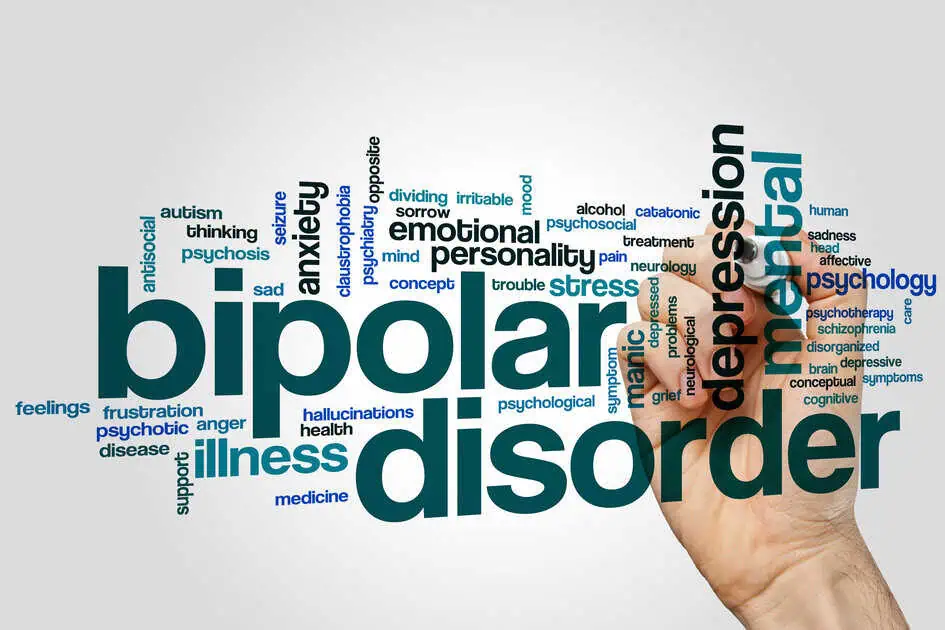Table of Contents
Imagine waking up one day feeling on top of the world, bursting with energy and grand ideas. Then, seemingly without warning, you find yourself plunging into a deep pit of despair, unable to muster the motivation to get out of bed. If this rollercoaster of emotions sounds familiar, you might be experiencing symptoms of bipolar disorder. But how do you broach this subject with your doctor?
Talking about mental health can be challenging, especially when it comes to complex conditions like bipolar disorder. However, open and honest communication with your healthcare provider is crucial for accurate diagnosis and effective treatment. In this comprehensive guide, we’ll walk you through the process of discussing bipolar disorder with your doctor, covering:
- Understanding bipolar disorder and its impact
- How to prepare for your doctor’s appointment
- Effective strategies for communicating your experiences
- What to expect during the diagnosis process
- Building a strong doctor-patient relationship
- Managing ongoing care and communication
Whether you’re seeking answers for yourself or supporting a loved one, this guide will equip you with the knowledge and confidence to have a productive conversation about bipolar disorder with your healthcare provider.
Understanding Bipolar Disorder: The First Step to Effective Communication
Before you can effectively communicate about bipolar disorder, it’s important to have a basic understanding of the condition.
What is Bipolar Disorder?
Bipolar disorder is a mental health condition characterized by extreme mood swings that include emotional highs (mania or hypomania) and lows (depression). These mood episodes can last for days, weeks, or even months, significantly impacting a person’s energy, activity levels, and ability to function in daily life.
Common Symptoms and Their Impact
Bipolar disorder symptoms can vary widely but typically include the following:
- During manic episodes: Increased energy, reduced need for sleep, racing thoughts, high-risk behaviors
- During depressive episodes: Profound sadness, hopelessness, loss of interest in activities, sleep disturbances
These symptoms can profoundly affect relationships, work performance, and overall quality of life. According to the National Institute of Mental Health, bipolar disorder affects approximately 2.8% of U.S. adults, with nearly 83% of cases classified as severe.
The Importance of Early Diagnosis and Treatment
Early identification and treatment of bipolar disorder can significantly improve outcomes and quality of life. However, many people struggle for years before receiving an accurate diagnosis. You can play an active role in your mental health journey by learning to communicate effectively with your doctor.
Debunking Myths and Stigmas
It’s crucial to approach the conversation about bipolar disorder free from misconceptions. Remember, bipolar disorder is a medical condition, not a personal failure or lack of willpower. By educating yourself and your loved ones, you can help combat stigma and promote understanding.
Preparing for Your Doctor’s Appointment
Preparation is key to having a productive conversation about bipolar disorder with your doctor. Here are some steps to take before your appointment:
Tracking Mood Patterns and Symptoms
Keep a mood diary for at least two weeks before your appointment. Note:
- Daily mood fluctuations
- Sleep patterns
- Energy levels
- Any unusual thoughts or behaviors
Apps like Daylio or eMoods can be helpful for mood tracking.
Listing Medications and Lifestyle Factors
Make a list of:
- All current medications, including over-the-counter drugs and supplements
- Significant life events or stressors
- Alcohol and caffeine consumption
- Exercise habits
Gathering Family History
Bipolar disorder can have a genetic component. If possible, gather information about any family history of mental health conditions, particularly mood disorders.
Writing Down Questions and Concerns
Prepare a list of questions you want to ask your doctor. This might include:
- What are the different types of bipolar disorder?
- What treatment options are available?
- How will bipolar disorder affect my daily life?
- What should I do in case of a crisis?
Breaking the Ice: Starting the Conversation About Bipolar Disorder
Initiating a conversation about bipolar disorder can feel daunting, but remember, your doctor is there to help.
Overcoming Anxiety and Hesitation
It’s normal to feel nervous about discussing mental health concerns. Try these strategies to ease anxiety:
- Practice what you want to say beforehand
- Bring a trusted friend or family member for support
- Remind yourself that seeking help is a sign of strength, not weakness
Choosing the Right Words
Be clear and direct when expressing your concerns. You might start with:
- “I’ve been experiencing extreme mood swings that are interfering with my life.”
- “I think I might have bipolar disorder, and I’d like to discuss the possibility.”
Using Concrete Examples
Provide specific examples of how your symptoms have affected your life:
- “Last month, I went three days without sleep and spent $5000 on unnecessary items.”
- “There are weeks when I can barely get out of bed and have called in sick to work multiple times.”
Being Honest About Your Concerns
Don’t hesitate to express your fears or concerns about the diagnosis or treatment. Your doctor needs to understand your perspective to provide the best care possible.
Navigating the Diagnosis Process
Understanding what to expect during the diagnostic process can help alleviate anxiety and ensure you provide the most helpful information.
What to Expect During a Bipolar Disorder Evaluation
A comprehensive evaluation for bipolar disorder typically involves:
- A detailed medical and psychiatric history
- A mental status exam
- Possibly blood tests or brain scans to rule out other conditions
Types of Questions Your Doctor May Ask
Be prepared to answer questions about:
- The duration and frequency of your mood episodes
- Your sleep patterns and energy levels
- Any family history of mental health conditions
- Substance use history
- Previous mental health treatments, if any
Potential Tests or Assessments
Your doctor may use standardized questionnaires or rating scales to assess your symptoms. These might include the Mood Disorder Questionnaire (MDQ) or the Bipolar Spectrum Diagnostic Scale (BSDS).
Understanding Your Diagnosis and Treatment Options
If you receive a bipolar disorder diagnosis, ask your doctor to explain:
- The specific type of bipolar disorder you have
- Recommended treatment options, including medications and psychotherapy
- Potential side effects of treatments
- Lifestyle changes that might help manage your symptoms
Building a Strong Doctor-Patient Relationship
A strong, trusting relationship with your healthcare provider is crucial for managing bipolar disorder effectively.
The Importance of Trust and Open Communication
Feel free to express your preferences, concerns, and goals. A good doctor-patient relationship is a partnership, with both parties working together towards your mental health goals.
Asking Questions and Seeking Clarification
Feel free to ask for clarification if you need help understanding something. You might say:
- “Could you explain that in simpler terms?”
- “Is there any written information I can take home about this?”
Discussing Treatment Preferences and Concerns
Be open about your treatment preferences and any concerns you have. For example, if you’re worried about a particular side effect, discuss this with your doctor to explore alternative options.
Setting Realistic Goals and Expectations
Work with your doctor to set achievable goals for your treatment. This might include:
- Reducing the frequency or severity of mood episodes
- Improving your ability to function at work or in relationships
- Developing better-coping strategies for stress
Beyond the Diagnosis: Ongoing Care and Communication
Managing bipolar disorder is an ongoing process that requires regular communication with your healthcare team.
Regular Check-ins and Follow-up Appointments
Attend all scheduled follow-up appointments, even if you’re feeling well. These visits are crucial for monitoring your progress and adjusting treatment as needed.
Monitoring Treatment Effectiveness and Side Effects
Track how your medications affect your mood and any side effects you experience. Report these to your doctor promptly.
Discussing Lifestyle Changes and Coping Strategies
Talk to your doctor about lifestyle modifications that can support your treatment, such as:
- Establishing a regular sleep schedule
- Incorporating stress-reduction techniques like mindfulness or exercise
- Avoiding alcohol and recreational drugs
When and How to Seek Help During a Crisis
Develop a crisis plan with your doctor. Know the warning signs of a manic or depressive episode and have a clear action plan for getting help when needed.
Conclusion
Opening up about bipolar disorder can be challenging, but it’s a crucial step towards getting the help and support you need. Remember, you’re not alone in this journey. Millions of people live successfully with bipolar disorder, and with proper treatment and management, you can, too.
By understanding the condition, preparing for your appointments, communicating openly with your doctor, and actively participating in your ongoing care, you’re taking important steps toward managing bipolar disorder effectively.
Don’t let fear or stigma prevent you from seeking the help you deserve. Your mental health is too important to ignore. If you’re ready to take the next step in your mental health journey, TMZ Behavioral Care supports you.
Schedule Your Comprehensive Bipolar Disorder Treatment Consultation Now and take the first step towards a more balanced, fulfilling life. Our experienced team is ready to listen, understand, and work with you to develop a personalized treatment plan. Your path to better mental health starts with a single conversation – let’s start that conversation today.






